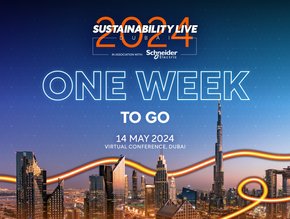Navigating the Sustainable Benefits & Social Concerns of AI

We’re looking from the outside-in to understand how technology can solve corporate challenges, especially where there is such a broad scope for impact. One of the hottest topics of the year, and growing by the minute, is generative artificial intelligence (Gen AI) and companies are starting to wonder how this can play to their advantage as they aim to streamline their sustainability efforts.
We know why—because sustainability is a long-term action and will play a role in their commercial success moving forward.
Gen AI is a natural progression for companies leveraging digital technology, so it’s no surprise that we can gather insights from the leaders in this space and consulting organisations that help businesses expand their use of technology. While AI is no instant solution to global problems, it simplifies the corporate approach, making the once burdensome sustainability agenda a more enriching feat.
As Elisabeth Goos, Market Leader of Sustainability Services for EMEA & DACH countries at IBM Consulting, says: “Generative AI is a gamechanger for its unique ability to take vast quantities of data and turn it into real insights at rapid speed”.
This is where Gen AI is leveraged the most—undertaking the tasks that cost businesses time and money; manual applications of data that soak up human resources. Goos describes this as a long-term pain point and Gen AI will be instrumental in reshaping this narrative.
“Inadequate and manually processed data has long been recognised as a key barrier to effective sustainability strategies. Not only are companies faced with the enormous task of collecting all the necessary data across their functions and supply chains to accurately measure their impact, but this data is often heterogeneous and historic,” says Goos. “According to IBM research, 41% of executives cite inadequate data as the top barrier holding back ESG progress.”
Organisations are abundant with data, which could present them with long-term insights from years of operation. This is likely where they will find traces of environmental impact, such as emissions, energy consumption, and other measurable units, allowing them to benchmark their sustainability against a history of commercial action.
As large language models (LLMs) emerge, data processing can become a function that works in the background of business-critical planning and activities.
“Large Language Models (LLM) have revolutionised how we approach this, creating models that can analyse data in all its forms whilst factoring in real-life shifts such as weather patterns or market trends. These models can then be used to drive insights across a wealth of areas, such as minimising waste, reducing energy usage, and optimising production,” Goos explains.
Automating the road to sustainability
Automating systems is but one approach to the overall strategy and is one that will get the ball rolling in the right direction. To avoid complacency—ie expecting AI to be the silver bullet—organisations should understand how it works and the value it provides as a tool for progress. Goos reiterates this, expressing the need for collaboration among partners to see through their collective actions towards things like net-zero emission or, if we look at supply chains, understanding the full extent of their influence on suppliers.
Much of this will combine with the incoming reporting standards as businesses look to the requirements of CSRD to understand how they can automate data interpretation and application. Jamie Sawchuk, Partner and Global Sustainability Leader for the Alphabet Google alliance at Deloitte Canada, sees clients building Gen AI into their operational toolkits, which comes with a further challenge—ensuring that human-centricity remains a priority for businesses. An example that highlights this challenge is the launch of ChatGPT, which had many organisations wondering how they could leverage the model to simplify business. In this process, the concerns around innovation came from employees who felt the unease from the inclusion of AI.
“We are leveraging AI combined with robust ethical and privacy guardrails to help automate steps in the ISSB and CSRD compliance processes,” says Sawchuk. “For most clients, the initial focus is on leveraging AI combined with data fully in the public domain.
It seems that, while integrating AI brings myriad benefits, uncertainty can be felt among human resources teams. At this point, sustainability encompasses the social implications, which is a growing trend in the AI conversation.
“Like many other technologies, AI can be a tool and an enabler of more efficient and sustainable operations,” Sawchuk explains. “And like other technologies, if AI isn’t combined with the appropriate governance, people, and process, there could be downside risks or unintended consequences.”
So how exactly can companies ensure ethical use of AI? Sawchuk closes with an example.
“An example of this is training AI using good data to enable good outcomes,” he says. “We can see mistakes such as AI hallucinations – i.e. AI generates inaccurate data as a result, and those types of mistakes can have a greater impact when being leveraged for things like assessing climate risk.
“This is why it is crucial to establish checkpoints and processes during your AI journey to ensure the best possible outcomes in your technology deployment.”
******
Make sure you check out the latest edition of Sustainability Magazine and also sign up to our global conference series - Sustainability LIVE 2024
******
Sustainability Magazine is a BizClik brand
- How Acer is Targeting 50 Tons of Ocean-Bound Plastic in 2024Sustainability
- Meet Christina Shim, IBM’s New Chief Sustainability OfficerSustainability
- Why EY is Warning US & Americas Companies on SustainabilitySustainability
- What are Fortinet's Plans for its Future Sustainability?Sustainability







